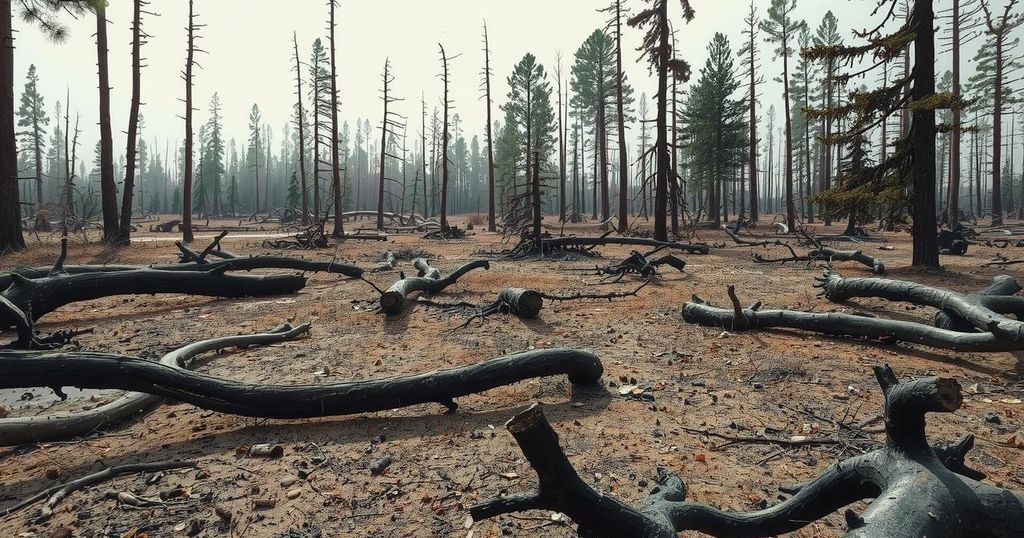In 2024, unprecedented climate disasters struck globally, exacerbated by record temperatures. Events included deadly heatwaves, severe flooding, and intense cyclones, resulting in significant human and financial losses. Reinsurance claims projected damages at $310 billion, revealing the urgent need for attention to climate-related issues and adaptation strategies.
In 2024, the world experienced unprecedented climate-induced disasters that affected regions globally, from impoverished places like Mayotte to affluent nations such as Saudi Arabia. This year has been recorded as the hottest in history, with extreme temperatures exacerbating weather patterns and contributing to substantial human and economic tolls. Experts from the World Weather Attribution network determined that climate change intensified nearly every disaster analyzed in the past year, indicating a clear and dire consequence of fossil fuel emissions.
The impact of heat waves was glaringly obvious, particularly during the Muslim hajj pilgrimage in Saudi Arabia, where temperatures soared to 51.8 degrees Celsius, resulting in over 1,300 fatalities. Other regions, including Thailand, India, and parts of the United States, also faced excessive heat, with severe outcomes. Notably, in Mexico, howler monkeys succumbed to heat, while Pakistan faced closures of schools due to soaring mercury levels above 50 degrees Celsius. Additionally, Greece experienced its earliest heatwave, leading to the closure of cultural sites and severe wildfires.
Climate change also contributed to extreme flooding events, with the United Arab Emirates recording two years’ worth of rainfall within a single day, significantly impacting Dubai’s international airport. East Africa experienced a dual crisis of drought and floods, with historic flooding affecting over four million people and claiming more than 1,500 lives in West and Central Africa. Countries around the world, including Afghanistan, Russia, Brazil, and China, likewise faced devastating flooding incidents.
Tropical cyclones gained in intensity due to warmer ocean temperatures, resulting in a tumultuous storm season in the United States and the Caribbean. The Philippines endured multiple major storms, and Cyclone Chino dramatically affected Mayotte, intensifying into a Category 4 storm. Moreover, the Americas grappled with severe drought conditions, leading to extensive wildfires in North America and the Amazon. The World Food Programme highlighted a dire situation in southern Africa, where approximately 26 million people faced hunger due to prolonged drought conditions.
The economic ramifications of these climate-related disasters have been staggering, contributing to thousands of deaths and plunging countless individuals into destitution. Swiss Re, a reinsurance company, estimated the global economic cost of these disasters at approximately $310 billion. Flooding incidents in Europe, especially in Spain, along with catastrophic hurricanes in the U.S., significantly impacted overall losses. The agricultural sector in Brazil faced a $2.7 billion hit due to drought, and global wine production suffered its lowest output since 1961 due to climatic challenges.
This article outlines the significant and alarming consequences of climate change as evidenced in various disasters in 2024. It highlights the extreme temperatures leading to heat waves, significant rainfall causing flooding, and hurricanes fueled by warmer ocean temperatures. Additionally, it delves into the economic impacts and the toll on human lives, portraying a grim picture of how climate change is currently affecting communities worldwide.
The climatic events of 2024 signify a pivotal moment in the discussion of climate change, illustrating the urgent need for action. Rising global temperatures have catalyzed intensified natural disasters, leading to a tragic loss of life and property. The economic toll underscores the necessity for strategic approaches to mitigate climate impacts to protect vulnerable populations and to transition towards sustainable practices, as the repercussions of inaction are dire.
Original Source: www.rfi.fr




